| Article ID | Journal | Published Year | Pages | File Type |
|---|---|---|---|---|
| 4270256 | The Journal of Sexual Medicine | 2013 | 9 Pages |
IntroductionIt is controversial whether or not testing the length of the androgen receptor polymorphism in clinical practice is useful for correct diagnosis and treatment of hypogonadism.AimTo describe the molecular and clinical implications of testing the length of the androgen receptor polymorphism for treatment of hypogonadism in both male and female subjects.MethodsA systematic Medline search was conducted using several terms related to and including the terms “androgen receptor,” “CAG‐repeat polymorphism,” “male hypogonadism,” “female hypogonadism,” and “neurodegenerative disease.”Main Outcome MeasuresClinical evidence that demonstrates the importance of CAG repeat number investigation in male and female hypogonadism.ResultsA thorough review of the clinical utility of CAG repeat polymorphism investigation in men and women with hypogonadism is presented.ConclusionsThe role of AR CAG repeat number investigation in hypogonadism (male and female) is not yet established in the clinical practice. In both sexes, a role during clinical management of hormonal replacement therapies may be hypothesized, but the CAG repeat number's relationship with the presence or absence of hypogonadal symptoms remains unclear. Pharmacogenomic investigations of the AR polymorphism may be a future option to tailor testosterone titration individually and to better identify subjects as potentially more or less responsive to treatments; also, investigation may be important to individually predict beneficial and side effects in special subpopulations, specifically, obese men and postmenopausal women. Francomano D, Greco EA, Lenzi A, and Aversa A. CAG repeat testing of androgen receptor polymorphism: Is this necessary for the best clinical management of hypogonadism? J Sex Med 2013;10:2373–2381.
